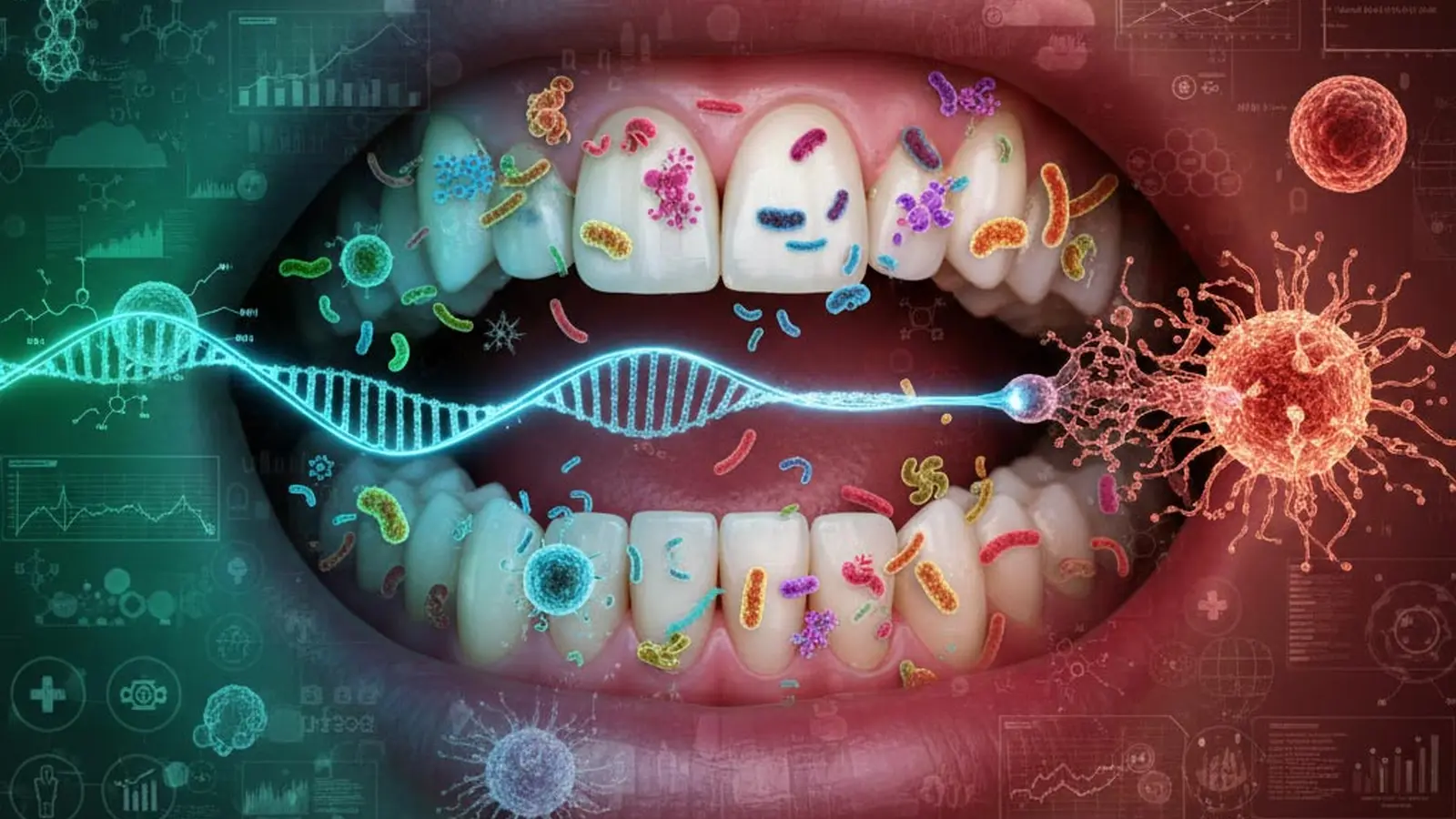5 Minutes
Overview: The mouth's microbiome and pancreatic cancer risk
Emerging research suggests that the complex community of microbes living in our mouths may be linked to the risk of developing one of the deadliest cancers: pancreatic cancer. The pancreas, an abdominal organ, plays a crucial role in digesting and absorbing nutrients through enzymes and hormones. While tumors in this organ are uncommon, the prognosis is often poor, with five-year survival around 13% once diagnosed. As scientists uncover more about how oral health relates to systemic diseases, the mouth’s microbial ecosystem could become a biomarker for cancer risk and a target for prevention.
Study design and major findings
Researchers led by cancer epidemiologists from New York University analyzed health records and mouthwash samples from two large, long-running studies. The combined cohort included more than 300,000 adults aged between their fifties and seventies. In total, 445 participants developed pancreatic cancer and were matched to 445 cancer-free controls.
Across the data, researchers identified 27 oral microbes associated with more than a threefold increase in pancreatic cancer risk. Among these were three mouth bacteria—Porphyromonas gingivalis, Eubacterium nodatum, and Parvimonas micra—and a common skin and gut fungus, Candida tropicalis, linked to higher cancer odds. Conversely, the analysis uncovered eight bacteria associated with reduced risk and 13 with heightened risk, underscoring that the oral microbiome’s composition can tilt cancer risk in multiple directions.
As with any observational study, the authors emphasize that these associations do not prove causation. Instead, they highlight specific microbial species worth further investigation to determine whether they contribute to cancer development or simply reflect underlying health patterns that accompany cancer risk.
Biological plausibility and mechanisms
Several plausible routes could explain how oral microbes influence pancreatic health. Some oral bacteria may reach the pancreas via the digestive tract and saliva, traveling through the body and potentially impacting inflammatory processes or immune responses. A broader “bacteriome-wide” pattern emerged, suggesting that the oral microbial ecosystem as a whole, not just individual species, could modulate cancer susceptibility.

Implications for screening and prevention
Given that pancreatic cancer often progresses without noticeable symptoms until advanced stages, identifying early risk factors is vital. The researchers propose that profiling the mouth’s bacterial and fungal communities might help oncologists flag individuals who could benefit from targeted screening for pancreatic cancer. This approach could complement existing risk factors such as genetics and medical history. Still, experts caution that more work is needed to translate these findings into clinical practice and to disentangle cause from correlation.
Commenting on the findings, NYU epidemiologist Jiyoung Ahn notes that modern cancer prevention could extend beyond teeth-cleaning. “By profiling bacterial and fungal populations in the mouth, oncologists may be able to flag those most in need of pancreatic cancer screening,” she explains. The team also points to the potential for future research to examine the role of oral viruses in shaping cancer risk.
Experimental approach and context
The study integrated data from two American cohorts: the Prostate, Lung, Colorectal, and Ovarian (PLCO) Cancer Screening Trial and the American Cancer Society Cancer Prevention Study-II Nutrition Cohort. Researchers conducted a bacteriome-wide analysis of oral microbial profiles and compared cancer outcomes between cases and matched controls, providing a robust dataset for exploring oral-systemic disease links.
Expert Insight
“The mouth serves as a window into systemic health. This research adds to a growing view that microbial ecology in our oral cavity can reflect and influence processes that extend far beyond the mouth itself. If confirmed, these findings could guide innovative screening strategies and preventive care that starts with oral health,” says Dr. Lena Ortiz, a cancer epidemiologist and science communicator.
Conclusion
While the identified mouth microbes do not prove they cause pancreatic cancer, their strong associations warrant deeper exploration. The study highlights a potential noninvasive avenue for risk stratification and early detection, complementing genetic and lifestyle risk factors. Future work will assess how viruses in the oral cavity contribute to risk and whether interventions targeting the oral microbiome could reduce pancreatic cancer incidence or improve outcomes.
Source: jamanetwork


Leave a Comment